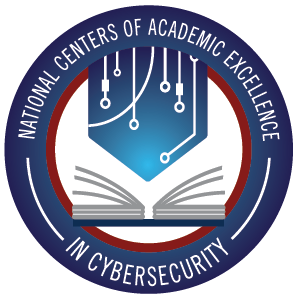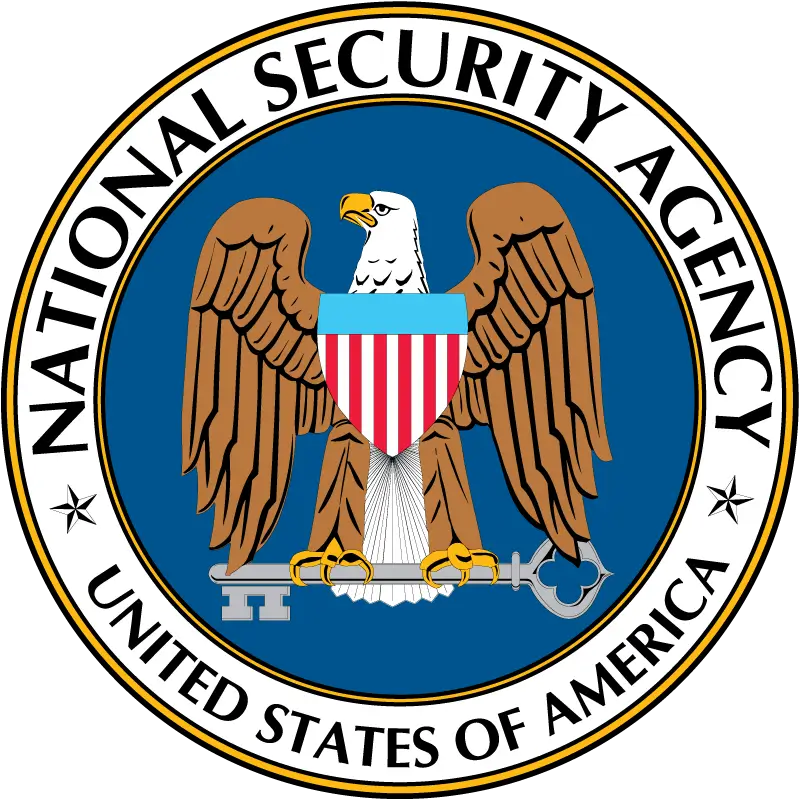Master of Science
Cybersecurity (Cohort) Degree
Lead teams in their defense of computer systems and networks in an accelerated, online setting.
Cybersecurity (Cohort) Degree
A flexible online master's in cybersecurity to prep you for the future of tech.
Convenience is an important factor when chasing your master’s in cybersecurity, and Bellevue University’s program is designed with that in mind. This cohort-based program provides a flexible, online master’s in cybersecurity degree for students currently trying to advance their careers while furthering their degree, giving them applicable skills through hands-on learning and a robust virtual environment.
Looking for the standard (traditional) program for a Master’s in Cybersecurity?
Accelerate the path to your master's.
As a cohort program, the cybersecurity master’s degree allows you to simplify your study experience with a course load that’s manageable for busy students. You’ll register for classes once at the beginning of the program without creating a new class schedule each term. Get to graduation sooner without slowing down.

NSA and DHS Designation of Excellence.


The National Security Agency and the Department of Homeland Security have designated Bellevue University as a National Center of Academic Excellence in Cyber Defense, (CAE-CD). This designation covers academic years 2022 through 2027.
Simplified admission—no GMAT or GRE required.
Select this cohort-based program without the cost and hassle of admissions tests. Our admissions team is here to help you apply and enroll so you can get started quickly on the education you want.
The industry tools and experience you need in a cybersecurity master's.
Earning your MS in Cybersecurity degree will provide you with the relevant industry knowledge you need to succeed. Bellevue offers a robust virtual environment and many open source and commercial cyber tools, as well as a faculty of industry professionals.
Take the next step in your master’s in cybersecurity degree. We’re ready to help you get there.
Courses
What You’ll Learn
Bellevue University’s Master of Science in Cybersecurity will enable you to:
- Develop, evaluate and communicate information and physical security policies, standards and guidelines.
- Assess and apply information technology governance, risk management and compliance procedures.
- Recommend control strategies to mitigate identified risks to information technology assets and manage responses to security incidents.
Cybersecurity (Cohort) Degree Courses
Current students please login to BRUIN and select “Academic Progress” for your curriculum requirements.
Requirements (36 credit hours)
Prerequisite: Students must have at least 3 years’ experience in IT; recommend at least 5 years.
(Click a course name below to view course details).
Session 1
This course addresses the issues relating to successful information security management. Topics include access control systems, network and software security, management practices, risk management, protection mechanisms, business continuity planning, and legal and ethical issues. The course allows for analysis of current security management models.
This course provides an introduction to the fundamental components of security architecture. Topics include computer organization; hardware, software and firmware components; open and distributed systems; and protection mechanisms. Discussion also includes certification and accreditation; formal security models; and evaluation criteria. Assigned projects include designing a model secure system.
Session 2
This course presents an examination of effective security methodologies based on comprehensive assessment of threats and implementation of a layered system of physical and electronic protection. Threat identification, countermeasures, and prevention are explored.
This course provides an exploration of the human aspects of Cybersecurity. Topics include human behavior and interaction, motivation and influence, and social engineering. Emphasis on the human element of cyber incidents in relation to protecting information and technology assets.
Session 3
This course provides an exploration of how organizations manage risks to information technology assets. Discussion includes the application of methodologies and models for managing such risks. Topics also include recognition of security threats and vulnerabilities and the analysis of associated risks. A systematic approach for acquiring and analyzing information to support decision-making in the protection of assets and the allocation of security resources is presented.
This course explores the concepts of governance and how it applies to information systems. Discussion includes the importance of compliance with laws, regulations, policies, and procedures as a means of minimizing risk through mandated security and control measures. Through this course, students also gain an understanding of Information Technology (IT) Auditing processes and principles.
Session 4
This course is designed as an overview of the investigative methods and tools associated with computer forensics. Topics include: processing crime and incident scenes, digital evidence controls, recovery of information, network forensics, data acquisition, and legal and ethical issues associated with investigations.
This course provides a technical study of offensive and defensive techniques for protecting cyber assets. Topics include security testing, risk mitigation techniques, and threat response. Discussion also includes penetration testing theory, techniques, and tools; networks, systems, and application vulnerability scanning; risk analysis and response; and intrusion detection and response. Emphasis is placed on identification of system vulnerabilities and threats and techniques for preventing attacks.
Session 5
This course is designed as an overview of the fundamental processes associated with waging war in an electronic age. Topics include strategic planning and tactical analysis for target identification, reconnaissance, and tool selection. The intent of this course is to focus on individual, corporate and national forms of warfare.
This course explores common techniques, tools, and technologies for committing white-collar cyber crimes. Topics include fraud prevention, anti-money laundering, investigative methodologies, and protecting privacy. Case students will demonstrate real-world scenarios of white collar crimes, how to prevent or deter them, detection methods, and response techniques.
Session 6
This course provides the student with an opportunity to identify the processes associated with business continuity planning and disaster recovery. Business continuity topics such as project scope and planning, assessing risk, developing policy and procedures, conducting business impact analyses, recovery strategies, recovery plan development, and implementation are explored. Disaster recovery will be discussed in terms of recovery plan development, implementation, and restoration.
This course presents an in-depth study of current trends in Cybersecurity threats. Discussion includes the identification and management of threats and vulnerabilities within an effective enterprise security program. Prior Cybersecurity education is synthesized through projects and assignments. Prerequisite: Must have 30 hours towards major requirements completed.
University Accreditation
Bellevue University is accredited by the Higher Learning Commission (hlcommission.org).
Whether a college, university, or program is accredited is important to students with financial aid, employers who provide tuition assistance, donors, and the federal government.
This program is considered a non-licensure degree/certificate program and is not intended for those seeking licensure or the practice of licensed profession. This program may be relevant to multiple occupations that do not require licensure and was not designed to meet educational requirements for any specific professional license or certification.
*Consult with an admissions counselor to determine your eligible credits, as well as to verify minimum graduation requirements for this degree. Transfer credits must be from a regionally accredited college or university. Bellevue University makes no promises to prospective students regarding the acceptance of credit awarded by examination, credit for prior learning, or credit for transfer until an evaluation has been conducted.
Format
100% Online learning that works for your life and your goals.
Our flexible online courses are designed to bring quality learning into a format that fits your schedule, without sacrificing meaningful faculty feedback and collaboration with peers across the country. Stay on track with the help of your Student Coach — with you from day one to graduation.
Graduate with a stronger professional network.
Get to know a consistent group of peers as you earn your master’s in cybersecurity degree. As a master’s cohort program, you’ll move through courses on the same schedule as your classmates—making it possible to develop a stronger network and enjoy a collaborative learning experience along the way.
See how online learning can make earning a master’s in cybersecurity possible for you.
Tuition & Financial Aid
Graduate degrees can be more affordable than you think.
Earning a degree is an investment in yourself. We want to help you make sure it’s a wise one.
2024 / 2025 Academic Year
$660 In-Class or Online Cost Per Credit
(Additional fees may apply to individual courses within your major requirements)
Curious about financial aid? We’ve got the answers.
As a graduate student, you may be eligible for up to $20,500 per year in unsubsidized Direct Student Loans.
And, students often apply for graduate program scholarships through Bellevue University or tuition reimbursement through their employers. Talk to us and we’ll help you explore your options.
Admissions
Start on the path to your master’s. No GRE or GMAT required.
We believe in reducing roadblocks to education. That’s why our admissions requirements focus only on what matters—helping hardworking students access the education they deserve.
For admission to Bellevue University, applicants must:
- Possess a bachelor’s or master’s degree from a regionally accredited college or university, or a U.S. equivalent degree from a nationally or internationally accredited college or university.
- Have maintained a GPA of 2.5 or better from the most recent 60 credits of coursework earned toward the bachelor’s degree or have maintained a GPA of 3.0 or better in previous graduate level coursework earned toward the graduate degree.
If you haven’t already, take a moment to request information about your masters program and get in touch with our admissions team. We’ll help make sure you have what you need and answer your questions.
When you’re ready to apply, start your application online. You’ll then:
- Submit your deposit to Bellevue University. (You can do this at any point in the process.)
- Submit your transcripts from past institutions and any other required documentation.
- Complete the FAFSA and see what grants and loans you’re eligible for.
If you are an international student, please see the following specific information: International Student Master Admissions.
You'll just need to create an account and complete a pre-application to Bellevue University through Guild. Once you receive confirmation that your pre-application to Bellevue University has been approved, you'll need to complete the required steps to get fully accepted and registered. These include:
- Submitting transcripts from past institutions
- Submitting related documentation
Degree Specific Admission Requirements
(in addition to the Bellevue University requirements for admission)
As a prerequisite to entering the cohort, students must have at least 3 years’ experience in IT; recommend at least 5 years.
Ready to get started?
Reach out to admissions.
- Get your questions answered about the Cybersecurity (Cohort) Degree
- Understand your financial aid and scholarship options
- Map out a schedule that fits with your priorities









